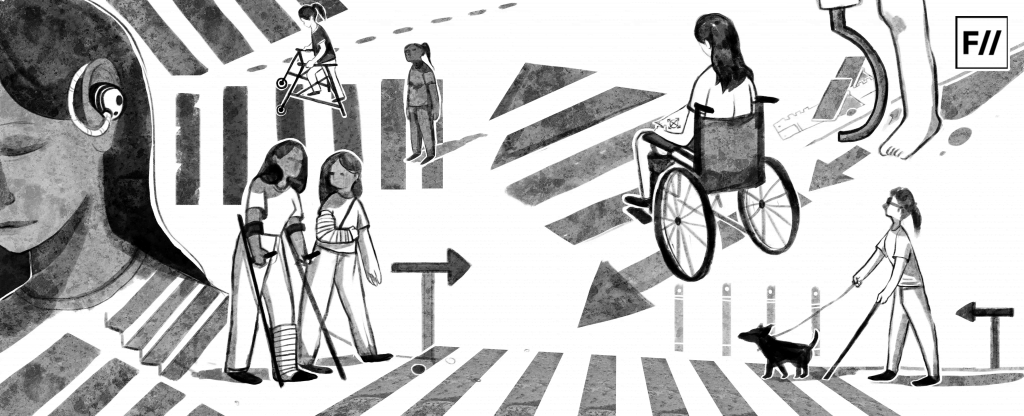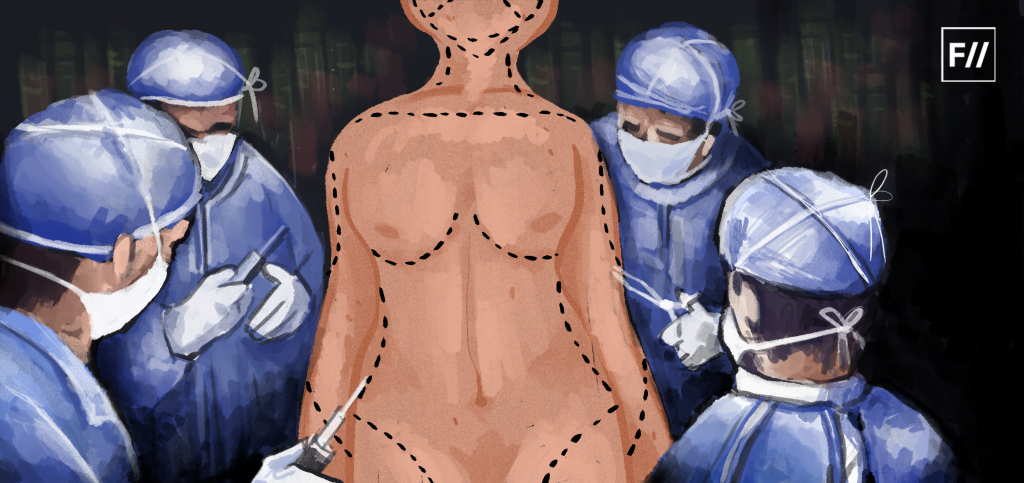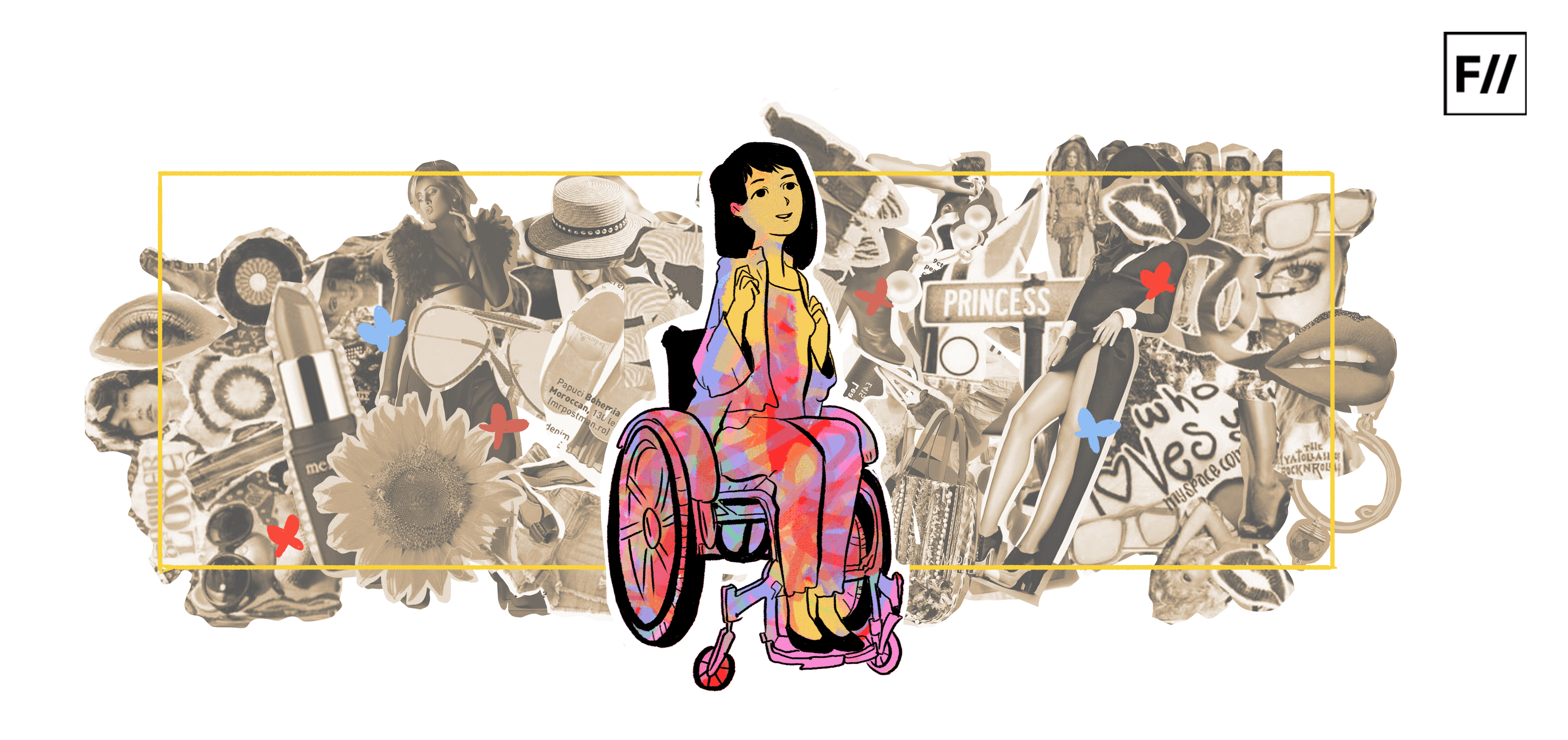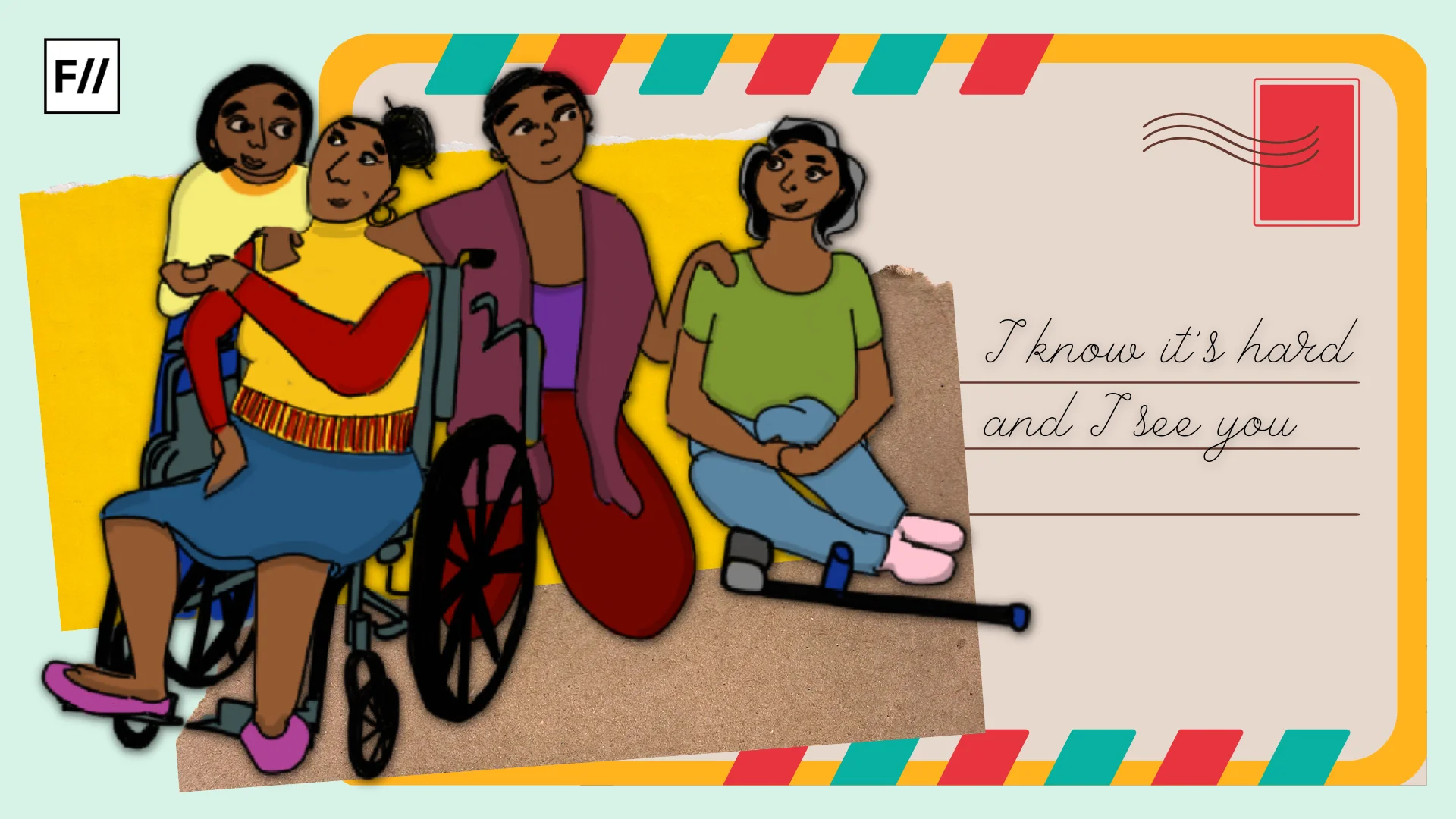Editor’s Note: This month, that is July 2020, FII’s #MoodOfTheMonth is Feminism And Body Image, where we invite various articles about the diverse range of experiences which we often confront, with respect to our bodies in private or public spaces, or both. If you’d like to share your article, email us at pragya@feminisminindia.com.
Self love and acceptance doesn’t come easy when you’re subjected to stereotypes and prejudices every day—when people in your life are ’embarrassed’ of you, when they want to keep your existence hidden, when they get uncomfortable to be seen with you, when they don’t ‘accept‘ you for who you are, when you’re told you’re not ‘able enough’, when you’re told you’re not ‘fair enough’, when you’re told you’re not ‘pretty enough’, when you’re told your body isn’t ‘beautiful enough’ and when you’re told, you’re not ‘enough‘!

“How do you then fall in love with yourself?“—is a question I often find asking to myself.
I always have loved myself. I felt really comfortable in my body until I entered middle school, where I was made to believe that I needed to be ‘fixed’. That I wasn’t enough. I remember a friend in seventh grade once told me, “Srishti, don’t you realize? Look at you. No matter how smart and how successful in your life you become, how much you try to look good, you’ll never be enough. You’re far too imperfect to be enough. How will you ever get rid of your disabled body?”
This statement came from the intention of supporting me but it ended up making me feel miserable about myself. I was too young to understand that it had its roots in ableism. Since it wasn’t even the first time someone said something like that to me, I believed her. I thought to myself that she is perhaps right. My body is disabled after all and it’s gonna stay like that. I can’t just get rid of it or hide it. Maybe I am too imperfect.
I would have people coming to me and telling me directly or indirectly that I wasn’t beautiful so much so that I surrendered to their ideas of beauty and started internalizing them. I was already invisible in school since it was not accessible and I didn’t get to move out of my classrooms until class 11th. Now because of the inaccessibility, my exposure to socialization was very limited.
I would have people coming to me and telling me, directly or indirectly, that I wasn’t beautiful so much so that I surrendered to their ideas of beauty and started internalizing them. I was already invisible in school since it was not accessible and I didn’t get to move out of my classrooms until class 11th. Because of the inaccessibility, my exposure to socialization was very limited, which meant that, I had to try even harder every day at school, to ‘fit in’. I would often day dream about my classmates coming to me and randomly complimenting me, just like they did to each other. But, as soon as that bubble would pop, I’d feel terrible. Imagine, a twelve-year-old feeling miserable in her own body!
Also read: Travelling With Club Foot: Negotiations With My Disability
Not only people who were close to me, but I was (and still am) often told and asked things like these by absolute strangers. For instance, one question I’m frequently asked by random people is, “Do you ever wonder how beautiful you’d look, if you didn’t have a disability?”, followed by them giving me unsolicited advice. Let alone them questioning me about my disability and suggesting ways to ‘heal’ myself, I can’t even count the number of times people have pointed out and called the scar that I have on my back from the operation, ‘ugly’. I have been asked/told, “…is there really no way to remove that mark?”, “But that scar is so long omg!” or “You know, I might actually know a way to remove it!”
And sometimes, people don’t even need to say anything at all. Their stares work just fine. They stare as if everything’s wrong with me, as if I don’t belong in the same world as them. Seldom I see acknowledgement of me as just another human being in their eyes. Mostly it’s filled with sympathy, fear or disgust.
After a certain point of time, I started to refuse accepting compliments at all. I’d get really confused and awkward.
Because why would anyone want to compliment me?
Wasn’t I the exact opposite of their ‘beauty’ standards?
Dark and disabled with a scarred body.

For a very long time, I didn’t know what it is like to feel beautiful. Back then I’d believe just any and every thing others would say about me. Not only would I agree to them but I’d also behave so as to conform to them. I’d do everything to appear better but it would only end up making me uncomfortable and terrible. I knew I had to stop it because what my friend said, about me never being ‘enough’, was actually true. By now I’ve seen it for myself. No matter how hard I tried, I could never be enough for them. That was it. I was exhausted.
For once, I wanted to feel comfortable in my body. I wanted to be myself. I had put in enough efforts to conform to them. Now, I wanted to put some efforts on myself, for myself. I understood that, for them I’ll never be enough. And that I never have to be. That I never needed to hide or get rid of my disability. That it made me who I am. That my disabled body is mine and I have every right to love it. That no one else has a right over it.
For once, I wanted to feel comfortable in my body. I wanted to be myself. I had put in enough efforts to conform to them. Now, I wanted to put some efforts on myself, for myself. I understood that, for them I’ll never be enough. And that I never have to be. That I never needed to hide or get rid of my disability. That it made me who I am. That my disabled body is mine and I have every right to love it. That no one else has a right over it. That I have every right to feel beautiful. That my scars don’t bother me, but they bother them and that’s not something I need to take care of. That beauty isn’t in being flawless, beauty is in being yourself.
That, perhaps, I am enough.
Also read: In Conversation With Srishti Pandey: The Gendered Aspects Of Disability
Of course, I haven’t quite reached there yet. It’s hard. But I know I’ll get there. I have finally started to surround myself with people who accept me for who I am. Who aren’t afraid of me. Who keep reminding me that I’m worthy of love and appreciation. No, the stares, the comments, they haven’t stopped. And they never will. But I have decided to believe in myself a little more, to love myself a little more.
Srishti Pandey (21) is a student of psychology at LSR, Delhi university. She is passionate about disability rights and generally writes on issues revolving around disability with the intention of creating awareness. Apart from writing, she loves travelling and exploring so much that one can find her rolling around the city almost any day, any time! You can find her on Instagram, Facebook and Twitter.
Featured Image Source: Feminism In India





Thank you for this masterpiece! As a teenager who is now questioning their gender, I always thought I need to make an effort to conform to all the stereotypes associated with my body. Because of being born with a vagina, I was shamed for my height and Because of the “beauty ideals” people ardently believed it, I was shamed for my pimples (which are a natural occurrence because of my age, people took it a bit too seriously) , my dark circles, my weight and the shape of my nose. I’ve finally learnt to ignore these shallow “necessities” for “ideal women” and embrace my body. Planning to work out and get ripped!